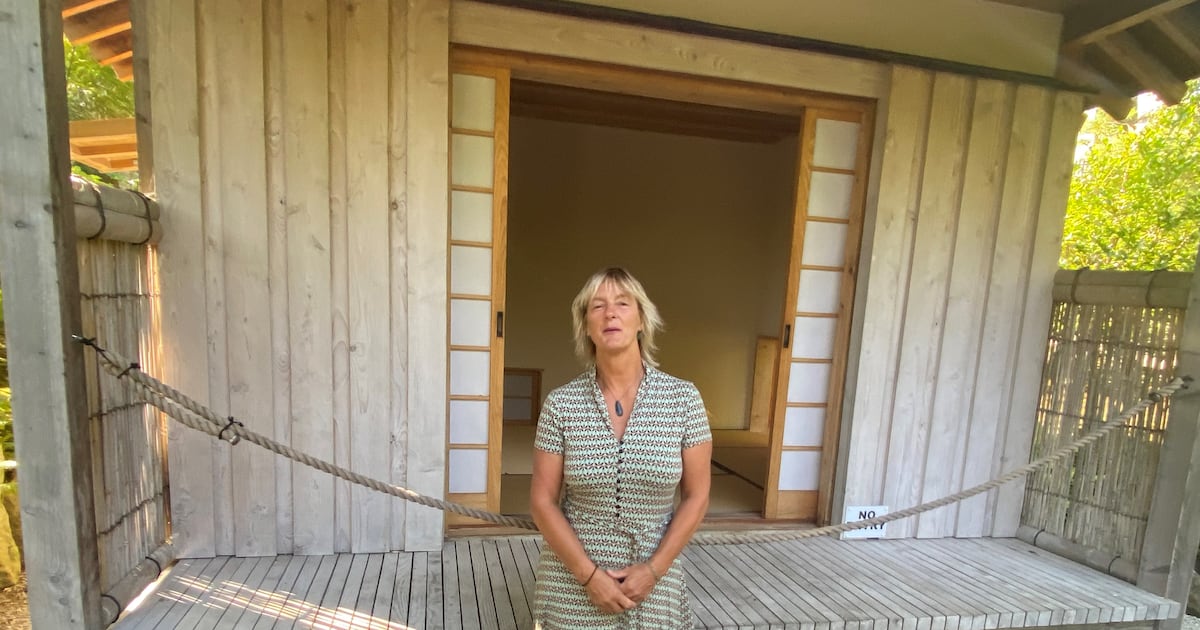Politics
Grace O’Sullivan Reflects on Her Environmental Legacy and Challenges

Grace O’Sullivan, a former Member of the European Parliament and renowned environmental activist, is reflecting on her extensive history in the fight against nuclear testing and climate change. Her legacy, which includes significant contributions to global environmental movements, faces challenges as geopolitical tensions mount and environmental policies come under threat.
From Activism to Diplomacy
O’Sullivan’s journey as an activist began in earnest after the tragic sinking of the Rainbow Warrior by the French secret service on July 10, 1985, which resulted in the death of her friend, photographer Fernando Pereira. Just months later, on October 24, she led a group of Greenpeace activists aboard the smaller vessel, Vega, toward the nuclear testing site at Moruroa Atoll in French Polynesia. Their mission was clear: to protest against France’s nuclear tests.
“I left Ireland for a purpose,” O’Sullivan recalls. When they received news of the impending test, there was no hesitation. The activists sailed into the exclusion zone, only to be intercepted by French commandos before dawn. They were handcuffed and escorted onto a warship as the Hero underground nuclear test commenced at 07:50, much to the satisfaction of Laurent Fabius, who was monitoring the event nearby.
France conducted a total of 187 nuclear tests over three decades, resulting in devastating health consequences for the indigenous populations of Tahiti and surrounding islands. By the time France signed the Comprehensive Nuclear Test Ban Treaty in 1996, extensive damage had already occurred.
The Impact of Nuclear Testing
O’Sullivan’s activism is deeply personal. The memories of her friend’s death during the Rainbow Warrior incident haunt her. Pereira drowned while attempting to salvage his cameras after the explosion of a second limpet mine. Their paths had crossed during earlier protests, including a campaign against the discharge of nuclear waste into the Irish Sea.
In 1985, O’Sullivan was part of a Greenpeace mission to Rongelap Atoll, where the fallout from the Castle Bravo hydrogen bomb test in 1954 had resulted in severe contamination. The repercussions of these tests included high rates of thyroid tumors and other health issues, which the United States government long denied were linked to their nuclear activities.
During her time at Rongelap, O’Sullivan witnessed the evacuation of the island’s inhabitants due to contamination. The sight of deformities among the children was particularly heart-wrenching. “Leaving their island home was heartbreaking for all concerned,” she recalls, emphasizing the human cost of nuclear testing.
The Rainbow Warrior continued its journey through the Pacific, documenting the effects of nuclear testing in small island nations, before ultimately meeting its demise in Auckland Harbour. O’Sullivan was deported under military escort on November 1, 1985, and prohibited from returning to French Polynesia.
Continuing the Fight
Returning to Ireland, O’Sullivan resumed her activism, including a notable protest where she climbed the anchor chain of a Soviet warship armed with nuclear warheads in the Mediterranean. Her dedication to the cause earned her a place in the political arena, where she later served as an MEP.
In 1988, she played a pivotal role in establishing the Greenpeace World Park on Ross Island in Antarctica, which allowed the organization to attend Antarctic Treaty meetings. This initiative aimed to secure a ban on mineral extraction and to designate the continent as a natural reserve dedicated to peace and science. O’Sullivan’s passion for environmental protection remains strong.
Despite her accomplishments, O’Sullivan expresses frustration over Ireland’s failure to sign the Antarctic Treaty, especially in light of recent concerns about geopolitical tensions affecting environmental protection in the region. She notes, “In Ireland, we need to honour our historical contribution to polar exploration by standing up for environmental protection and signing the Treaty.”
As she reflects on her past, O’Sullivan remains concerned about current political developments, particularly the actions of Donald Trump, who has withdrawn from the Paris Agreement and supports controversial oil drilling initiatives. “Antarctica may be in his sights if the world is not careful,” she warns, emphasizing the need for vigilance in environmental matters.
O’Sullivan’s personal journey and activism remind us of the ongoing struggle for environmental justice and the importance of standing firm against threats to our planet. As global leaders grapple with complex geopolitical challenges, her call to action resonates louder than ever.
-

 Top Stories2 months ago
Top Stories2 months agoTributes Surge for 9-Year-Old Leon Briody After Cancer Battle
-

 Entertainment4 months ago
Entertainment4 months agoAimee Osbourne Joins Family for Emotional Tribute to Ozzy
-

 Politics4 months ago
Politics4 months agoDanny Healy-Rae Considers Complaint After Altercation with Garda
-

 Top Stories3 months ago
Top Stories3 months agoIreland Enjoys Summer Heat as Hurricane Erin Approaches Atlantic
-

 World4 months ago
World4 months agoHawaii Commemorates 80 Years Since Hiroshima Bombing with Ceremony
-

 Top Stories2 months ago
Top Stories2 months agoNewcastle West Woman Patricia Foley Found Safe After Urgent Search
-

 Top Stories4 months ago
Top Stories4 months agoFianna Fáil TDs Urgently Consider Maire Geoghegan-Quinn for Presidency
-

 World4 months ago
World4 months agoGaza Aid Distribution Tragedy: 20 Killed Amid Ongoing Violence
-

 World4 months ago
World4 months agoCouple Convicted of Murdering Two-Year-Old Grandson in Wales
-

 World4 months ago
World4 months agoAristocrat Constance Marten and Partner Convicted of Infant Murder
-

 Top Stories3 months ago
Top Stories3 months agoClimbing Errigal: A Must-Do Summer Adventure in Donegal
-

 Top Stories3 months ago
Top Stories3 months agoHike Donegal’s Errigal Mountain NOW for Unforgettable Summer Views









